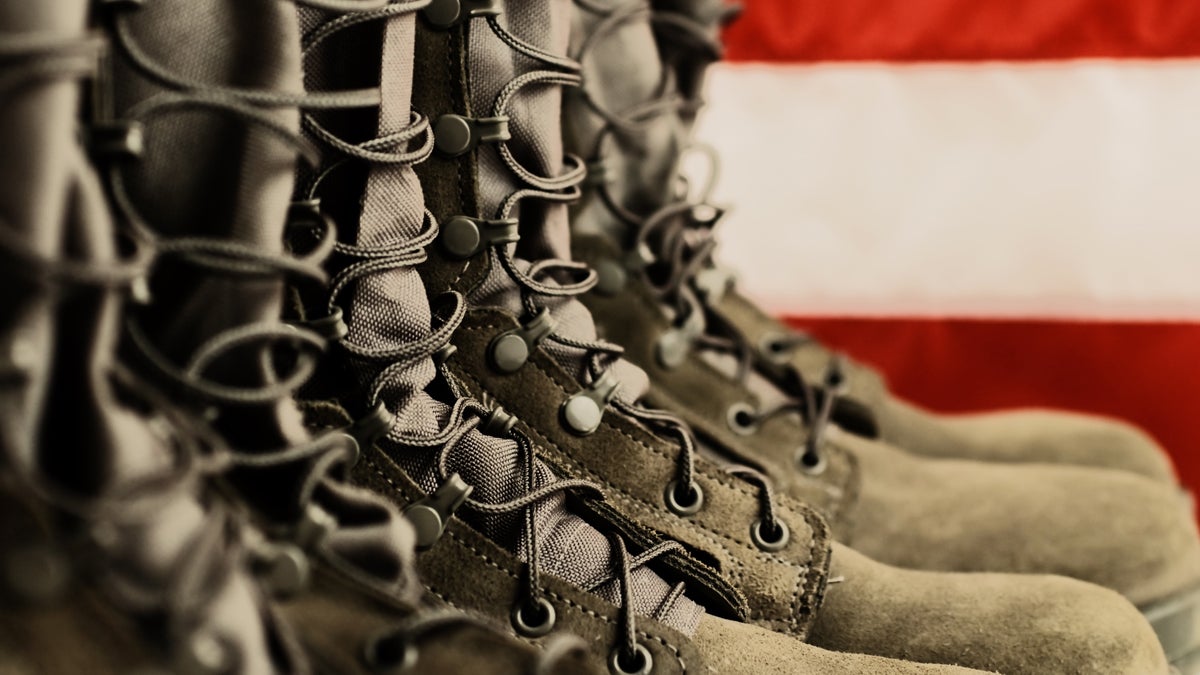National Guard, reservists now eligible for free VA treatment of military sexual trauma
Listen Photo via ShutterStock) " title="ssmilitarybootsx1200" width="1" height="1"/>
Photo via ShutterStock) " title="ssmilitarybootsx1200" width="1" height="1"/>
(Photo via ShutterStock)
This week, the Department of Veterans Affairs expanded its free treatment for mental and physical health issues related to military sexual trauma, or MST. Now, National Guard members and those assaulted during “inactive duty training” will also be eligible for treatment through the VA.
Jessica Desrosiers, coordinator of MST care at the VA Hospital in Wilmington, Delaware, along with representatives from the Philadelphia and Coatesville VA’s say they’re expecting to see more cases after the announcement.
This change reflects the reality of where MST occurs. Military sexual trauma “can happen within the individual’s home community if the person’s in the National Guard or a reservist, it can happen in combat,” said Desrosiers. “There’s no place it can’t happen.”
In a statement from spokesman Kurt M. Raushchenberg, the National Guard called the change “monumental,” because now, “MST is not determined by duty status but by the effects that such a traumaic event…has on an individual.” This expansion occurred a part of the Veterans Access, Choice and Accountability Act of 2014.
The expansion is a part of the VA’s effort to provide “free care for all physical and mental health conditions determined by their VA provider to be related to experiences of MST,” according to the Veterans Health Administration. MST is not a specific diagnosis, but is instead defined as “any sexual activity where a servicemember is involved against his or her will.”
VA hospitals, which screen all incoming patients for military sexual trauma, estimate about one in four servicewomen and one in 100 servicemen are victims of MST.
Desrosiers said the physical and mental health consequences of military sexual trauma range from depression, post-traumatic stress disorder and sleep issues, to gastrointestinal problems and chronic pain. But, unlike other service-related health problems, veterans seeking treatment for military sexual trauma don’t need to go through the paperwork to prove that it’s service-related.
“We’ve made it really easy,” said Desrosiers.
On the prevention side, the National Guard has had a “stand-alone” Sexual Assault Prevention and Response Program (or SHARP) since 2005. Active-duty branches of the military have their own SHARPs, but the National Guard is the only reserve group with one. As of 2010, there were about 1.1 million people in the reserves for all branches of the armed forces, and about half a million people in the National Guard.
Local vets who are now eligible can call the Philadelphia Veterans Affairs Medical Center (VAMC) at 215-823-454 for an appointment in Behavioral Health, or their local VAMC. In Delaware, veterans can call 302-994-2511, extension 2451.
WHYY is your source for fact-based, in-depth journalism and information. As a nonprofit organization, we rely on financial support from readers like you. Please give today.

